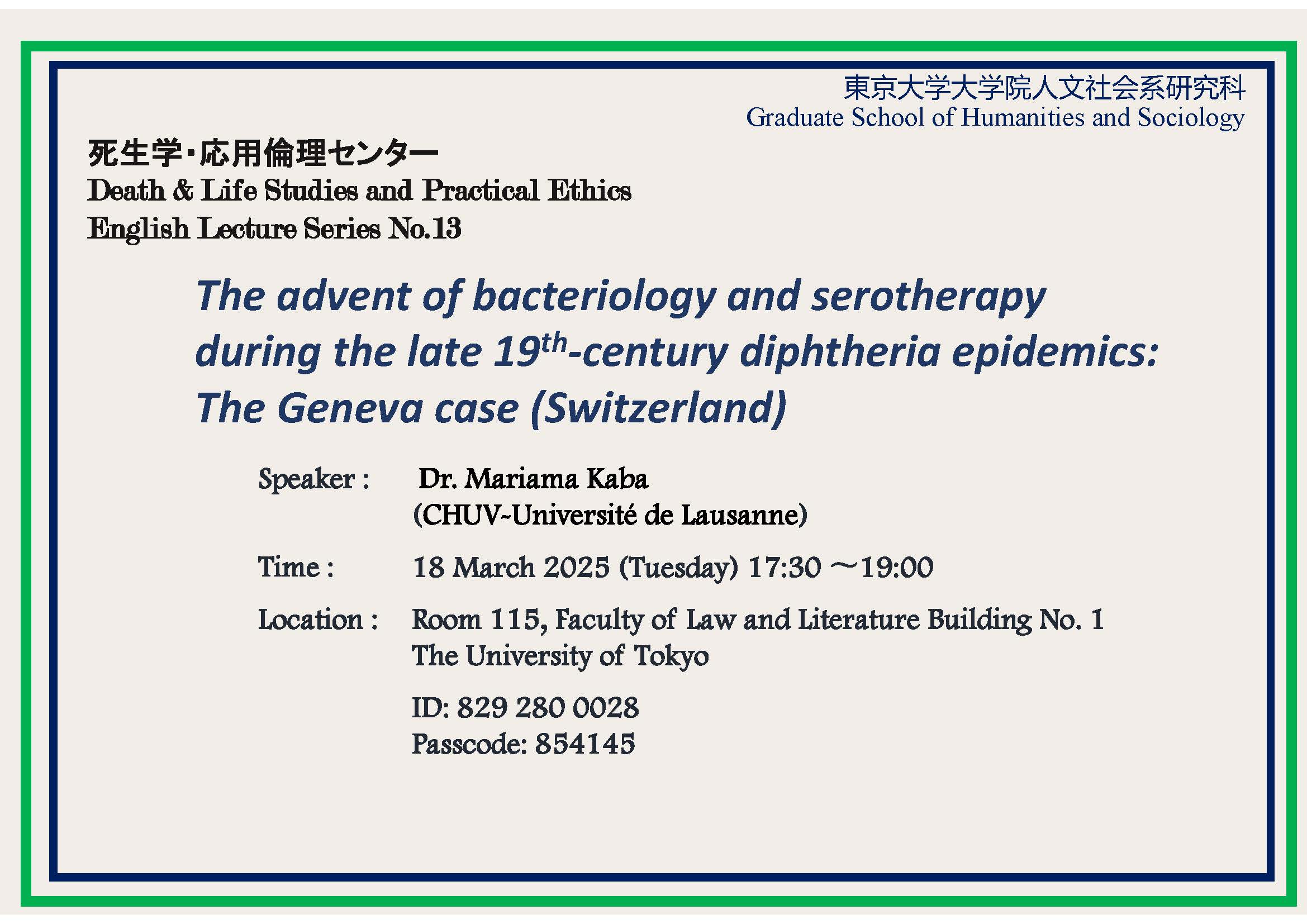Death & Life Studies and Practical Ethics Lecture Series
Number 013
Dr. Mariama Kaba, "The advent of bacteriology and serotherapy during the late 19th-century diphtheria epidemics: The Geneva case (Switzerland)"
【Date and Time】18 March 2025 (Tuesday) 17:30-19:00
【Venue】Room 115, Faculty of Law and Literature Building No.1, The University of Tokyo
【Zoom】 ID: 829 280 0028 Passcode: 854145, Free to attend
【Language】English
【Host】Death & Life Studies and Practical Ethics
【Joint Hosts】Graduate School of Humanities and Sociology, Tokyo College
【Grant】Fuse Academic Grant
【Speaker】
Dr. Mariama Kaba, Head of Research (Institute of Humanities in Medicine, CHUV-University of Lausanne)
【Abstract】
At the end of the 19th century, Switzerland did not possess its own national institute of bacteriology equivalent to the Pasteur Institute in France, nor did it promote intensive research in competitive laboratories like in Germany. Thus, the development of Swiss diphtheria serum production took place independently in each canton depending on local resources and good will. The study of the Geneva canton, located in southern Switzerland, offers an interesting example of this situation.
At the beginning of the 1890s, particularly virulent waves of epidemics coming from northern Switzerland reached Geneva, which experienced an unprecedented peak in infant mortality due to diphtheria. Thus, the introduction of the “anti-diphtheritic” serum in Geneva coincided with a pronounced preoccupation with the disease on the part of the local authorities and doctors. Geneva’s scientific community could go beyond local isolation by networking with foreign institutions. This cooperation allowed the importation of new sera from the bacteriologists Louis Pasteur (France) and Emil von Behring (Germany) and the distribution of the product in Geneva starting in October 1894. In 1896, the French serum production model was copied locally thanks to the close relationship established with the Pasteur Institute. The Geneva serum was then distributed and used according to each physician’s appreciation of the product’s curability.
In my talk, I will show how the Geneva canton managed for the product to be accepted and how it developed medical and social measures allowing the production, distribution and curability control of the serum, in total autonomy and isolation from any national support. I will also emphasize the challenges of fighting epidemics at the time of emerging bacteriology, by highlighting the importance of local actors and international networks.


